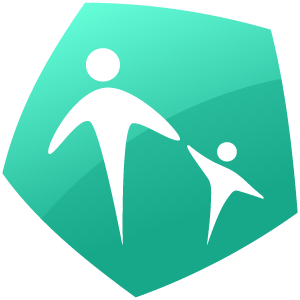Diabetes
 Policy
Policy
One World Children’s Centre will not accept children into care until the child’s medical plan is completed and signed by their health team or Doctor and the relevant staff have been trained on how to manage the individual child’s diabetes.
Legislation
Relevant legislation and standards include but are not limited to:
Education and Care Services National Law Act 2010
Education and Care Services National Regulations 2011: Regulations 168
Information Privacy Act 2000 (Vic)
Health Records Act 2001 (Vic), as amended 2011
Information Privacy Act 2000 (Vic)
National Quality Standard, Quality Area 2: Children’s Health and Safety
Occupational Health and Safety Act 2004 (Vic), as amended 2007
Privacy Act 1988 (Cth)
Public Health and Wellbeing Act 2008
Public Health and Wellbeing Regulations 2009 (Vic)
Definitions:
The terms defined in this section relate specifically to this policy.
Type 1 diabetes: An autoimmune condition that occurs when the immune system damages the insulin producing cells in the pancreas. Type 1 diabetes is treated with insulin replacement via injections or a continuous infusion of insulin via a pump. Without insulin treatment, type 1 diabetes is life threatening.
Type 2 diabetes: Occurs when either insulin is not working effectively (insulin resistance) or the pancreas does not produce sufficient insulin (or a combination of both). Type 2 diabetes is unlikely to be seen in children under the age of 4 years.
Hypoglycaemia or hypo (low blood glucose): Hypoglycaemia refers to having a blood glucose level that is lower than normal i.e. below 4 mmol/L, even if there are no symptoms. Neurological symptoms can occur at blood glucose levels below 4 mmol/L and can include sweating, tremors, headache, pallor, poor co-ordination and mood changes. Hypoglycaemia can also impair concentration, behaviour and attention, and symptoms can include a vague manner and slurred speech.
Hypoglycaemia is often referred to as a ‘hypo’. Common causes include but are not limited to:
- taking too much insulin
- delaying a meal
- consuming an insufficient quantity of food
- undertaking unplanned or unusual exercise.
It is important to treat hypoglycaemia promptly and appropriately to prevent the blood glucose level from falling even lower, as very low levels can lead to loss of consciousness and convulsions.
The child’s diabetes management plan will provide specific guidance for services in preventing and treating a hypo.
Hyperglycaemia (high blood glucose): Hyperglycaemia occurs when the blood glucose level rises above 15 mmol/L. Hyperglycaemia symptoms can include increased thirst, tiredness, irritability and urinating more frequently. High blood glucose levels can also affect thinking, concentration, memory, problem-solving and reasoning. Common causes include but are not limited to:
- taking insufficient insulin
- consuming too much food
- common illnesses such as a cold
- stress.
Insulin: Medication prescribed and administered by injection or continuously by a pump device to lower the blood glucose level. In the body, insulin allows glucose from food (carbohydrates) to be used as energy, and is essential for life.
Blood glucose meter: A compact device used to check a small blood drop sample to determine the blood glucose level.
Insulin pump: A small, computerised device to deliver insulin constantly, connected to an individual via an infusion line inserted under the skin.
Ketones: Occur when there is insufficient insulin in the body. High levels of ketones can make children very sick. Extra insulin is required (given to children by parents/guardians) when ketone levels are >0.6 mmol/L if insulin is delivered via a pump, or >1.0 mmol/L if on injected insulin.
Background
Services must ensure that each child with diabetes has a current diabetes management plan prepared specifically for that child by their diabetes medical specialist team, at or prior to enrolment, and must implement strategies to assist children with type 1 diabetes. A child’s diabetes management plan provides staff members with all required information about that child’s diabetes care needs.
The child’s diabetes medical specialist team may include an endocrinologist, diabetes nurse educator and other allied health professionals. This team will provide parents/guardians with a diabetes management plan to supply to the service.
Contact Diabetes Australia – Vic for further support or information.
Most children with type 1 diabetes can enjoy and participate in service programs and activities to their full potential, but are likely to require additional support from service staff to manage their diabetes. While attendance at the service should not be an issue for children with type 1 diabetes, they may require time away to attend medical appointments.
Procedure
The Centre Co-ordinator is responsible for:
- ensuring that the parents/guardians of an enrolled child who is diagnosed with diabetes are provided with a copy of the Diabetes Policy and the Dealing with Medical Conditions Policy
- ensuring that the programs delivered at the service are inclusive of children diagnosed with diabetes and that children with diabetes can participate in all activities safely and to their full potential
- ensuring that the Nominated Supervisor, staff and volunteers at the service are aware of the strategies to be implemented for the management of diabetes at the service
- ensuring that each enrolled child who is diagnosed with diabetes has a current diabetes management plan prepared specifically for that child by their diabetes medical specialist team, at or prior to enrolment
- ensuring that all staff, including casual and relief staff, are aware of children diagnosed with diabetes, symptoms of low blood sugar levels, and the location of medication and diabetes management plans
- ensuring that the educators, staff, students, volunteers and others at the service follow the child’s diabetes management plan in the event of an incident
- ensuring that a risk minimisation plan is developed for each enrolled child diagnosed with diabetes in consultation with the child’s parents/guardians
- ensuring that a communication plan is developed for staff and parents/guardians encouraging ongoing communication between parents/guardians and staff regarding the management of the child’s medical condition
- ensuring that children diagnosed with diabetes are not discriminated against in any way and are able to participate fully in all programs and activities at the service.
- compiling a list of children with diabetes and placing it in a secure but readily accessible location known to all staff. This should include the diabetes management plan for each child
Certified Supervisors and educators are responsible for:
- reading and complying with this Diabetes Policy and the Dealing with Medical Conditions Policy
- following the strategies developed for the management of diabetes at the service
- following the risk minimisation plan for each enrolled child diagnosed with diabetes
- knowing which children are diagnosed with diabetes, and the location of their medication and diabetes management plans
- following the child’s diabetes management plan in the event of an incident at the service relating to their diabetes
- communicating with parents/guardians regarding the management of their child’s medical condition
- ensuring that children diagnosed with diabetes are not discriminated against in any way and are able to participate fully in all programs and activities at the service.
Parents/guardians are responsible for:
- reading the service’s Diabetes policy
- informing staff, either on enrolment or on initial diagnosis, that their child has diabetes
- providing a copy of their child’s Diabetes Management Plan to the service and ensuring it has been prepared in consultation with, and signed by, a medical practitioner.
- ensuring all details on their child’s enrolment form and medication record are completed prior to commencement at the service
- working with staff to develop a Risk Minimisation Plan for their child
- providing an adequate supply of appropriate diabetes medication and equipment for their child at all times
- notifying staff, in writing, of any changes to the information on the Diabetes Management Plan, enrolment form or medication record
- communicating regularly with educators/staff in relation to the ongoing health and wellbeing of their child, and the management of their child’s diabetes
- encouraging their child to learn about their diabetes and to communicate with service staff if they are unwell.
Sources
Caring for Diabetes in Children and Adolescents, Royal Children's Hospital Melbourne: www.rch.org.au/diabetesmanual/index.cfm?doc_id=2352
Diabetes Australia – Vic:
Information about professional learning for teachers (i.e. Diabetes in Schools one day seminars for teachers and early childhood staff), sample management plans and online resources. Refer to www.diabetesvic.org.au/type-1-diabetes/children-a-adolescents
Diabetes Basics for teachers (a DVD that provides real life stories from students and teachers at primary and secondary schools. It includes a CD-ROM with downloadable sample diabetes management plans). Refer to www.diabetesvic.org.au/order-publications?view=publicationsshop
2012 Kindergarten Parents Victoria Diabetes Policy
Diabetes management plan samples for children with/without insulin pumps (including The Royal Children’s Hospital Melbourne diabetes management plan sample and Monash Children’s – Southern Health diabetes management plan sample). Refer to www.diabetesvic.org.au/type-1-diabetes/children-a-adolescents





 One World for Children Acknowledgement of Country: Here is the land; Here is the sky; Here are my people and here am I. We give thanks to future, present and past; Ancestors and Elders and the connection that lasts. We acknowledge the Wathaurong people on whose land we learn and play; We promise to look after it every day. ©
One World for Children Acknowledgement of Country: Here is the land; Here is the sky; Here are my people and here am I. We give thanks to future, present and past; Ancestors and Elders and the connection that lasts. We acknowledge the Wathaurong people on whose land we learn and play; We promise to look after it every day. ©